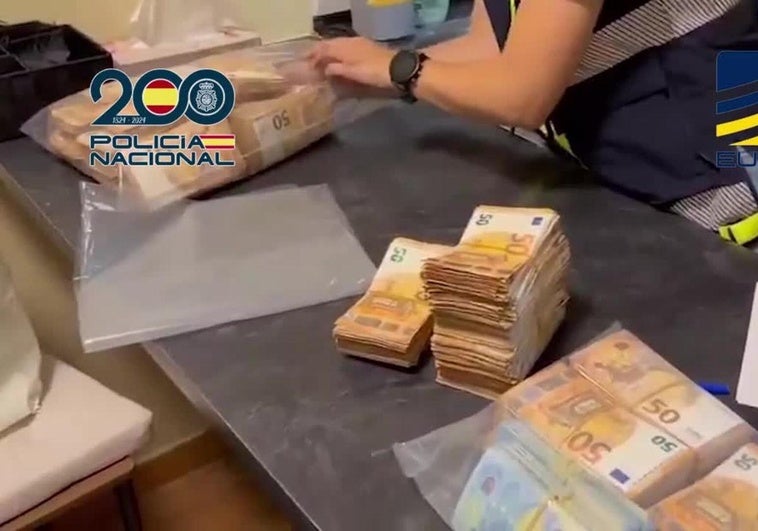
Sections
Highlight
Sections
Highlight

It was dubbed 'Operation Geld' and was considered the largest cryptocurrency seizure in Europe involving 17 million euros from scams and technological fraud. The crypto assets were seized in September of last year by Spain's National Police and placed at the disposal of the Marbella court that led the investigation.
However, in January, when the Ministry of Justice's asset recovery and management office (ORGA) tried to convert the cryptocurrencies into euros, it discovered that the wallets seized in November were practically empty. Someone had stolen almost the entire sum in virtual money and realised that the theft was done by someone on the inside.
National Police officers then opened a new investigation, which was launched under the strictest secrecy to avoid leaks of information and, above all, to prevent the perpetrator from knowing that they were on to him. The investigation ended up cornering an LAJ court clerk (Letrado de la Administración de Justicia), who was the 'number two' in the Marbella court that was investigating the original case.
The judicial official was arrested just before Easter. According to sources, he admitted to the crime. In one of the searches carried out, National Police investigators located the keys and recovered the almost 19 million euros of the value at the time in cryptocurrencies.
It transpired that detainee was actually appointed as a substitute LAJ in a job exchange. The role requires a degree in law and no previous record. However, he was a civil servant in the administration of justice, having passed several civil service exams, and was considered to be a hard worker.
The investigation began by analysing the chain of custody of the passwords to access the seized cryptocurrencies. After 'Operation Geld', the police kept the wallet passwords in a sealed envelope, which was kept in police custody.
Afterwards, the envelope was handed over to the Marbella court and, from there, it remained in a vault of judicial consignments. Three months later, it was sent to ORGA's offices in Madrid to be converted into euros, where it was discovered that the virtual wallets were practically empty.
The investigation focused on identifying all the police officers, court officials, ORGA officials and even employees of the transport company with which the administration of justice works, who were involved in the chain of custody of the cryptocurrency wallet.
Somewhere along the way, someone had gained access to the envelope containing the information and passwords to access the wallets and siphoned off the crypto-assets. The police dusted the envelope for fingerprints to try to find out who had taken the keys to access the virtual money from it, but they only found those of the people who had touched it as part of their job.
The theft had also happened during the last part of the court process, not at the beginning. Investigators got the impression that the perpetrator tried to time the theft to coincide with the arrival of the envelope at ORGA, which dispersed responsibility and increased the number of suspects.
However, investigators discovered a clue that eventually proved to be crucial: the substitute LAJ described himself as a cryptocurrency investor and had bought a virtual warehouse, where the keys were securely stored. Searches of his properties confirmed the suspicions of the investigating police officers.
Publicidad
Publicidad
Publicidad
Publicidad
Esta funcionalidad es exclusiva para registrados.
Reporta un error en esta noticia

Debido a un error no hemos podido dar de alta tu suscripción.
Por favor, ponte en contacto con Atención al Cliente.

¡Bienvenido a SURINENGLISH!

Tu suscripción con Google se ha realizado correctamente, pero ya tenías otra suscripción activa en SURINENGLISH.
Déjanos tus datos y nos pondremos en contacto contigo para analizar tu caso

¡Tu suscripción con Google se ha realizado correctamente!
La compra se ha asociado al siguiente email
Comentar es una ventaja exclusiva para registrados
¿Ya eres registrado?
Inicia sesiónNecesitas ser suscriptor para poder votar.